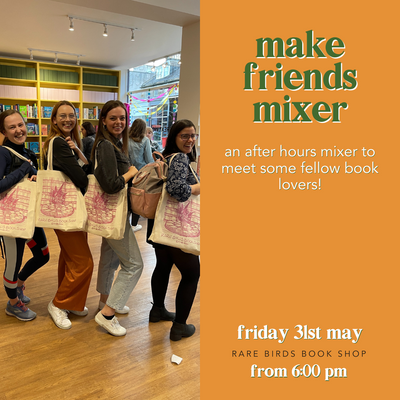The Irresistible Rise of Romance
Romance is a genre which has, historically, been treated poorly. This may have something to do with the assumption that it is ‘women’s writing’ and therefore to be taken less seriously (eye roll) than the more acceptably masculine world of literary fiction, or dramatic thrillers. But all that is changing.
Romance novels are currently seeing a massive boom, with a reported sales rise of around 39% over the course of the pandemic. BookTok - a subsection of popular social media platform TikTok - provides perfect proof of this, with creators falling over themselves to gush over their latest literary crushes, and recommend their most recent romantic reads. The phrase ‘TikTok made me buy it’, has been applied to a host of such books, from Ali Hazelwood’s bestselling STEM romance The Love Hypothesis, to Emily Henry’s perfect holiday read You and Me On Vacation. And of course, the adaptation of Julia Quinn’s Bridgerton series by Netflix has sparked a renewed interest in regency romance and historical romance (for a modern spin on this period, we would recommend Reputation by Lex Croucher).
So why are we all suddenly falling head over heels in love with love?
One answer is, naturally, the sheer awfulness of the past two years. In a world which became uncertain and unpredictable overnight, romance novels offer something comforting in their familiar tropes and guarantee of a happy ending. There is a reason that ‘enemies to lovers’, ‘friends to lovers’, ‘grumpy vs sunshine’ and other key romance tropes are trending phrases on BookTok: people love a story which follows a set course. Other similarly ‘predictable’ genres, such as the good old fashioned ‘whodunnit’ murder mystery, saw similar increases in sales. Clearly, people have been craving consistency.
But is there something more at play?
Arguably, romance novels have simply improved. Gone are the days when the only options came from Mills and Boon, and were likely to depict a swooning white woman on the cover in some ‘exotic’ location. As romance has evolved and risen in popularity, it has also developed in terms of diversity. The straight white heroine is no longer the default, and with books whose protagonists come from differing cultures or sexualities, a far larger proportion of the population are finally able to see themselves reflected in their reading. Many of these novels tackle familiar topics, such as interfering families (we’d recommend Last Tang Standing by Lauren Ho or Yinka, Where Is Your Huzband? by Lizzie Damilola Blackburn) or the difficulties of getting over a break-up. As attitudes surrounding what a romantic lead should look like have altered, the whole genre has expanded and changed for the better, offering better representation both on and off the pages.
Another change has been in the depiction of women’s sexuality. Whereas previous romance novels may have been written with women in mind, many still tended to be very ‘male gazey’, with the passive heroine accepting whatever ravishment came her way (not that this can’t make for an enjoyable read of course). Modern romance novels present a far more positive picture. With BookTokers excitedly rating their newest reads in terms of ‘spice’ (finally a use for the chilli emoji!), it is clear that half the attraction of these novels is their unashamed inclusion of sex scenes. And unlike much literary fiction, whose overuse of complex and confusing metaphors usually makes for interesting candidates when it comes to the Literary Review's Bad Sex in Fiction Award, these romance novels are producing sex scenes which are simultaneously well-written, genuinely hot and manage to seamlessly navigate relevant topics such as consent. Rosie Danan’s The Roommate and it’s sequel The Intimacy Experiment are perfect examples of fun, sex positive romances, which also tackle contemporary relationship issues.
Whatever the reasons for its rise, it is clear that the romance novel is here to stay, and we say: all power to it. The idea that reading should always be hard or serious is outdated and counterproductive - just let us have nice things! The escapism and comfort that romances bring should be celebrated, and I for one will frequently be indulging in the future.



